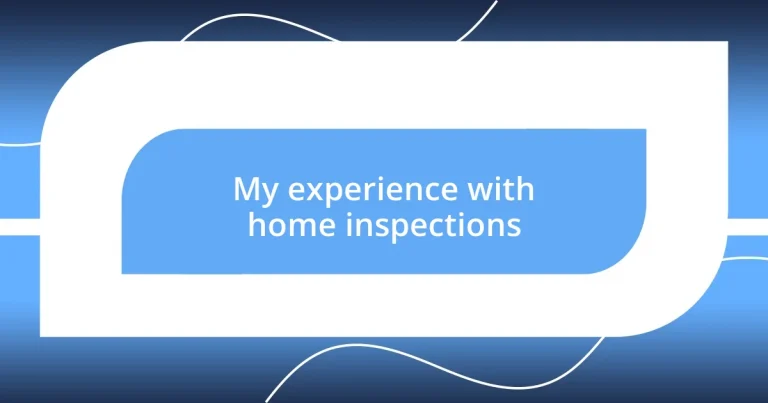Key takeaways:
- Home inspections provide essential insights into a property’s condition, revealing hidden issues that can influence buying decisions and foster confidence in homeownership.
- Proper preparation for an inspection—including clearing clutter, documenting repairs, and ensuring utilities are on—can alleviate anxiety and lead to a smoother inspection process.
- After receiving the inspection report, it’s crucial to categorize repair issues, consider negotiating with the seller, and budget for potential repairs to manage financial implications effectively.
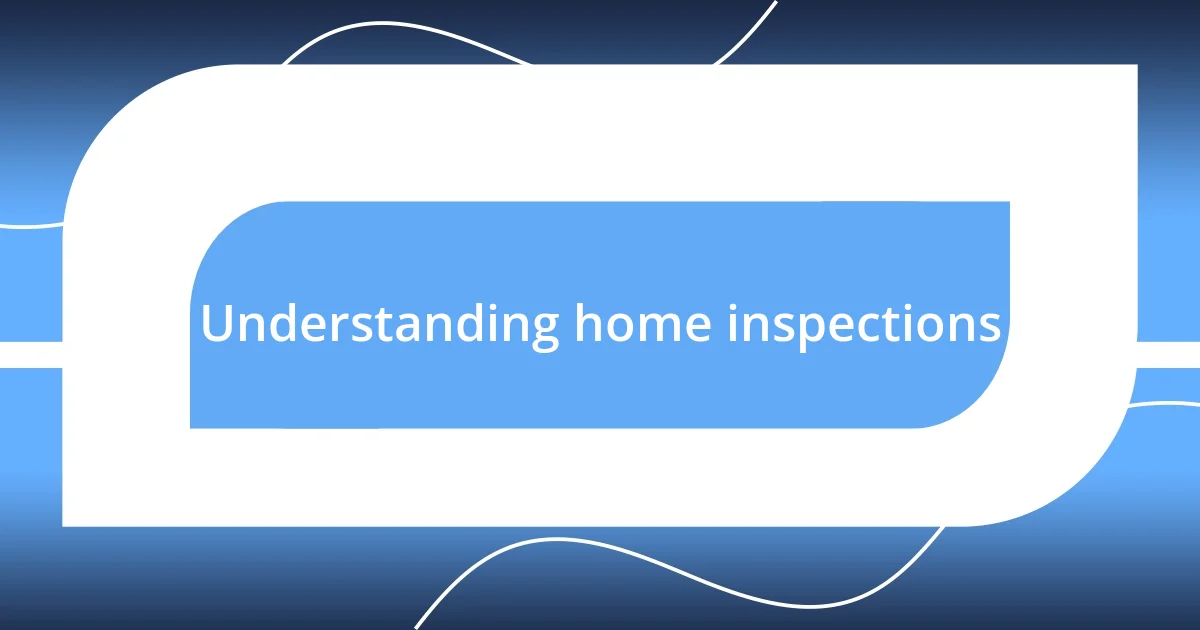
Understanding home inspections
Understanding home inspections is crucial for any potential homeowner, and I’ve seen firsthand how they can shape decisions. I remember walking through a house I loved, but the inspector’s report unveiled hidden plumbing issues that turned my excitement to apprehension. Isn’t it better to know what lies beneath the surface before making such a significant investment?
When I finally became a homeowner, I learned that home inspections aren’t just about identifying problems; they’re also about giving peace of mind. During my inspection, the inspector pointed out both current issues and maintenance tips that I had never even considered. I felt empowered to make informed choices, transforming my anxiety into confidence.
Have you ever thought about how much you can learn from a home inspection? Beyond just checking for safety risks, it’s a unique opportunity to gain insights into a home’s overall health. This experience not only helps you negotiate repairs, but it also fosters a deeper understanding of your future home.
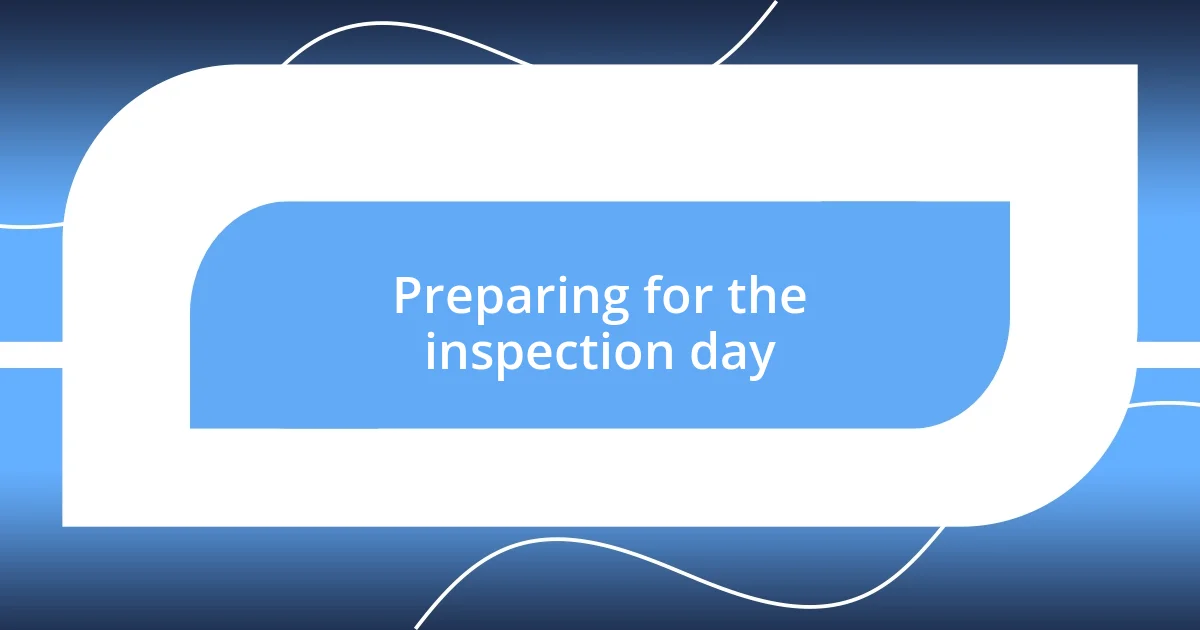
Preparing for the inspection day
Preparing for the inspection day is a crucial step in ensuring everything goes smoothly. I remember the mixed feelings of excitement and nerves as that day approached. To be honest, I was a bit overwhelmed by the thought of what the inspector might find, but I also knew proper preparation could help ease my anxiety.
Here are some essential tips I gathered from my own experience:
- Clear Clutter: Make sure to tidy up spaces so the inspector can access all areas, including attics and basements.
- Document Repairs: Gather any repair records or receipts to show the inspector. This can help illustrate how well the home has been maintained.
- Prepare for Questions: Be ready to answer questions about the house’s history, like when the roof was last replaced or if there have been any previous issues.
- Utilities Check: Ensure that all utilities, such as water and electricity, are on. This allows the inspector to perform a comprehensive evaluation.
- Stay Calm: Remember, the inspection is a standard procedure. Staying relaxed can help you focus on what matters, rather than getting caught up in potential bad news.
Reflecting on my inspection day, I made sure to follow these steps, and it made a world of difference. I felt less anxious knowing I was prepared, and I could focus on learning rather than worrying.
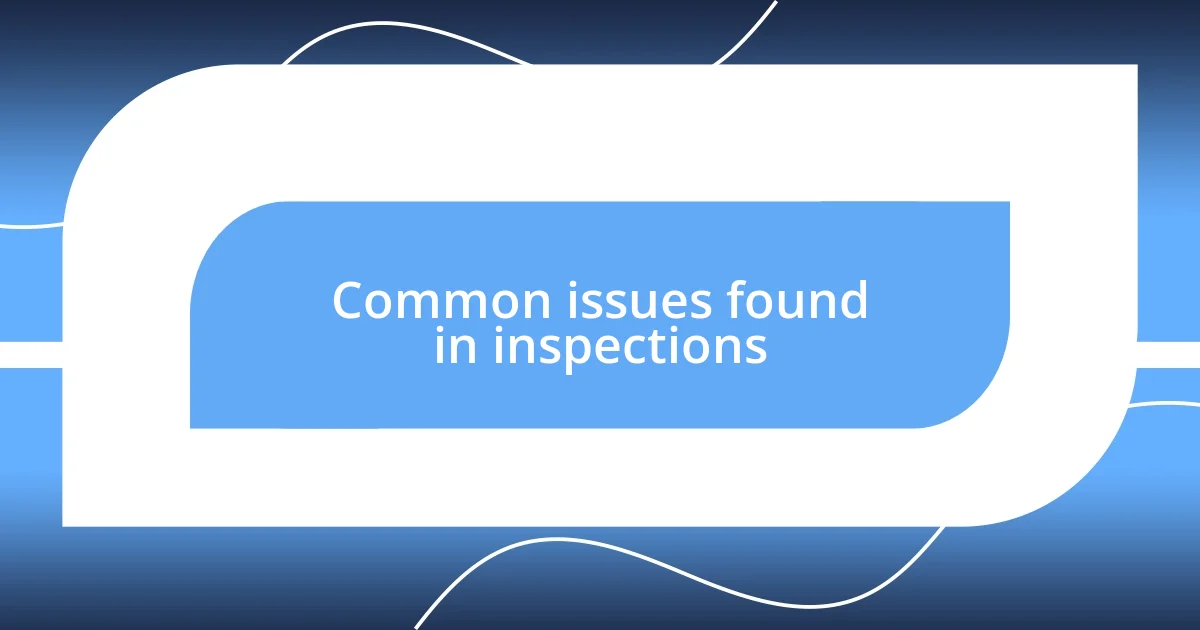
Common issues found in inspections
Common issues that arise during home inspections can often be surprising, and they reflect not just a home’s age but also the level of care that previous owners put into it. In my experience, I’ve discovered neglect in things like outdated electrical systems or poor drainage that can lead to significant problems down the road. I remember a particular property where a simple roof leak escalated into mold growth, which was a wake-up call that made me appreciate the importance of a thorough inspection.
One major red flag I encountered was pest infestations, particularly termites. It’s not something I expected to find, but the inspector noticed signs of wood damage that indicated the presence of these critters. These issues can quietly eat away at the value of a home and often come with hefty repair bills, so catching them early is essential. It’s a valuable insight—inspectors are trained to detect even the most subtle signs that laypeople might overlook.
Another common issue I’ve come across is inadequate insulation or ventilation. During one home inspection, the inspector pointed out that lack of proper insulation could lead to excessive heating bills in winter. That resonated with me; I wouldn’t want to invest in a home that might cost me more in the long run due to underlying issues. It’s those details that can save you both money and stress over time.
| Issue | Impact |
|---|---|
| Plumbing Issues | Leads to costly repairs and potential water damage. |
| Electrical Problems | Presents safety hazards and can affect insurance rates. |
| Pest Infestations | Causes structural damage and can be financially draining. |
| Insulation Deficiency | Increases energy costs and decreases comfort. |
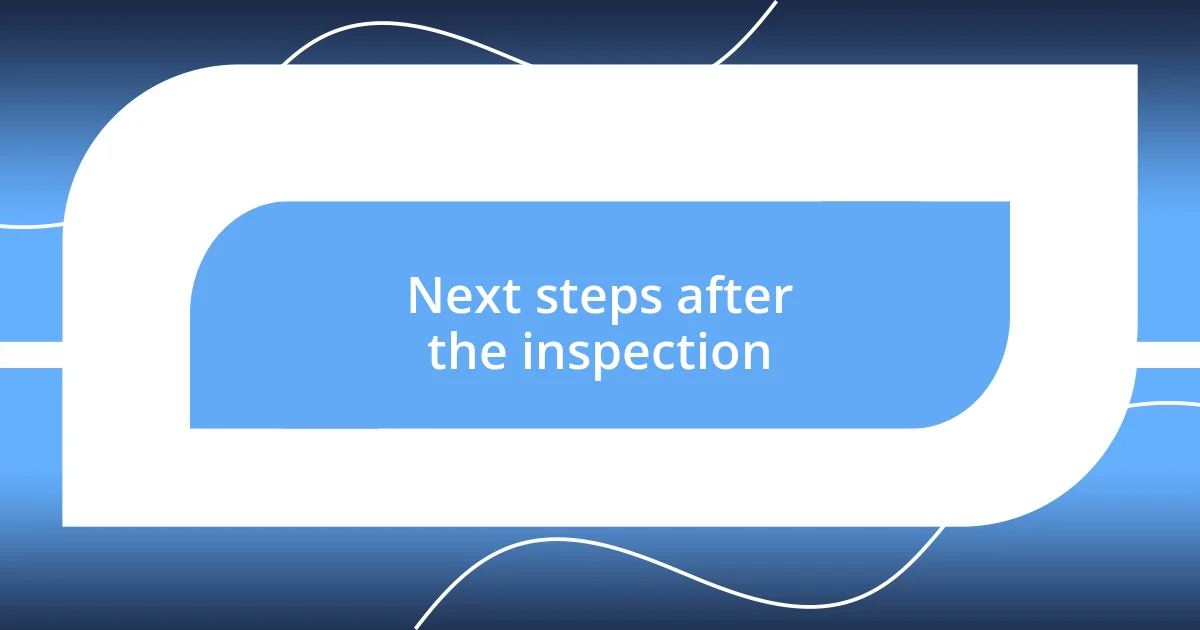
Next steps after the inspection
After receipt of the inspection report, your next steps should be methodical. I remember staring at that report, feeling a mix of relief and apprehension. The first thing I did was to prioritize the issues listed by the inspector. It’s essential to categorize them: urgent repairs that demand immediate attention, routine maintenance concerns, and minor cosmetic fixes can help in determining what needs to be tackled first.
One of the key decisions I faced was whether to negotiate with the seller based on the inspection findings. It felt a bit daunting, but after some deliberation, I realized that asking for repairs or a credit was entirely reasonable. I remember crafting my email with a sense of urgency. How can one overlook serious safety issues like electrical problems? If you find significant concerns, don’t hesitate to approach the seller; it can save you a lot of headaches down the line.
Finally, I recommend budgeting for the post-inspection repairs. Reflecting on my experience, I initially underestimated the financial implications of some of the issues that came up. Setting aside funds for repairs allowed me to tackle those urgent items without the stress of overspending. Have you thought about how these repairs could affect your financial future? Being proactive about budgeting can provide peace of mind as you navigate homeownership.












